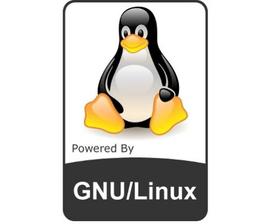The fifth maintenance release of the Linux kernel 3.12 is available now. Linux Kernel 3.12.5 contains various updated drivers (networking, SCSI, USB, Xen), a couple of sound updates, and several ARM improvements. See the changelog for details.
All users of the 3.12 kernel series are urged to upgrade as soon as possible. Here’s how to do it in Ubuntu 13.10, Ubuntu 13.04, Ubuntu 12.04, Linux Mint and their derivatives.
Install / Upgrade Linux Kernel 3.12.5:
1. Press Ctrl+Alt+T on keyboard to open terminal. When it opens, run commands below to download DEBs from Ubuntu Kernel page.
For 32 bit system:
cd ~/Downloads/ wget http://kernel.ubuntu.com/~kernel-ppa/mainline/v3.12.5-trusty/linux-headers-3.12.5-031205-generic_3.12.5-031205.201312120254_i386.deb wget http://kernel.ubuntu.com/~kernel-ppa/mainline/v3.12.5-trusty/linux-headers-3.12.5-031205_3.12.5-031205.201312120254_all.deb wget http://kernel.ubuntu.com/~kernel-ppa/mainline/v3.12.5-trusty/linux-image-3.12.5-031205-generic_3.12.5-031205.201312120254_i386.deb
For 64 bit system:
cd ~/Downloads/ wget http://kernel.ubuntu.com/~kernel-ppa/mainline/v3.12.5-trusty/linux-headers-3.12.5-031205-generic_3.12.5-031205.201312120254_amd64.deb wget http://kernel.ubuntu.com/~kernel-ppa/mainline/v3.12.5-trusty/linux-headers-3.12.5-031205_3.12.5-031205.201312120254_all.deb wget http://kernel.ubuntu.com/~kernel-ppa/mainline/v3.12.5-trusty/linux-image-3.12.5-031205-generic_3.12.5-031205.201312120254_amd64.deb
2 Install this kernel:
cd ~/Downloads/ && sudo dpkg -i linux-headers-3.12.5-*.deb linux-image-3.12.5-*.deb
If you’re using an proprietary driver, you may need to rebuild or even re-install it to make it work with the new kernel. Once done, restart your computer.
If for some reason this kernel release does not work properly for you. Reboot into previous kernel (Grub -> Advance -> select previous kernel) and run command below to remove Linux Kernel 3.12.5:
sudo apt-get remove linux-headers-3.12.5-* linux-image-3.12.5-*
